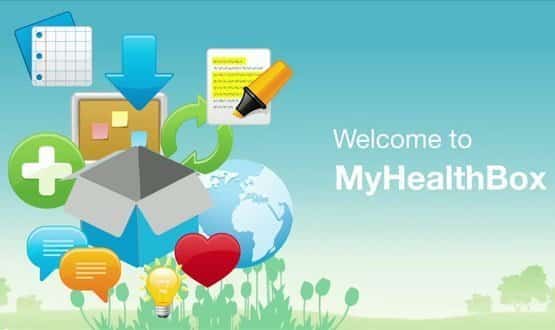Living in a box
- 15 May 2012

“Exciting” was the word of the day for speakers at the launch of MyHealthBox. “Innovative” and “empowering” also popped up more than once as people spoke about why patient controlled records are a good idea.
MyHealthBox uses Microsoft’s HealthVault platform to create a patient record for South London and Maudsley NHS Foundation Trust’s service users.
The online portal can pull data from the trust’s Electronic Patient Journey System and from primary care – and patients can contribute to it themselves.
It includes things such as care plans, welfare advice, applications like “rate my day”- in which service users can make notes about how they are feeling – and feedback functions.
Patient representative Caroline Hough told people attending a London launch event at the British Film Institute that patients “need and want information.”
She believes MyHealthBox “heralds a whole new way of working” as it is about empowering people to take responsibility for themselves, so they can share in decisions and not just “be told what to do.”
Culture shifts
Hough said she felt she was a part of a big cultural shift towards patients being more involved in their care. Service user representation on NHS project panels can sometimes be “nominal”, she said. But it certainly wasn’t in this case.
“We don’t think service users are going to be nominal in the future. We are at this shift point and the balance is going to tip. It’s wonderfully exciting and I applaud South London and Maudsley’s courage and commitment,” she said.
Trust chief executive Stuart Bell said he was not a techie person, but he still believed that MyHealthBox is “really really profound in its significance.”
He described it as one of the first practical manifestations of what NHS organisations will have to do differently if they are serious about moving towards healthcare being a shared enterprise with patients.
Bell used an interesting analogy when he said the change was a bit like the shift to IKEA culture; in which people buy a bookcase and then build it themselves.
“Information is power,” he said. “It’s not just sharing it, it’s contributing to it, and having the ability to participate actively and decide what you want to share, even with your clinician, and vice versa.”
However, he recognised that it would also have a big impact on those working in the health service. “This will require health care professionals to significantly rethink how they work and bring about important cultural change,” he said.
He also argued the project could have a transformative impact on research, as the feedback functions can give insight into what is happening in the real world of service users.
Bypassing CfH
Bell said his trust had managed to “bypass the worst excesses of NHS Connecting for Health.” It developed its own electronic medical record with Strand Technology, leaving it in the “quite enviable” position of being able to shape its electronic information systems and the way they are used.
“That has given us the capacity to have these sorts of initiatives and relationships with private sector partners,” he added.
Strand became a Microsoft HealthVault partner for the MyHealthBox project, while other specialist companies have been brought in to work on the record and the applications attached to it.
Microsoft UK general manager, public sector Dr Nicola Hodson, told the launch that projects like MyHealthBox are at the forefront of a transformation in healthcare.
“We are stimulating the industry to come up with new applications for HealthVault,” said Hodson. “It’s really about wellness and making people think about lifestyle and how to manage that and take control before they get into the health system.”
This theme of patients taking more responsibility for their own health fits comfortably with the government’s push towards patients being more involved in their care.
Its interest in projects to enable this was highlighted by health minister Earl Howe’s launch speech. He described MyHealthBox as “the information revolution in action.”
Earl Howe said that when people fall ill, they often feel at the mercy of the systems around them that do not talk to one another and this is “most painfully true for those with mental health issues.”
“If we can empower and engage people with these problems, and, in doing so, improve outcomes, there’s a chance we could do it for everyone,” he told the audience.
More of the same in the information strategy
Earl Howe said the much-anticipated NHS information strategy is due to be published next week and will aim to harness the power of information and technology to transform health and social care.
“What it won’t do, as we’ve seen so lamentably with the National Programme for IT, is reinvent mammoth central systems or impose top-down edicts from Whitehall that don’t work on the ground,” he explained.
“It will provide national support only where there’s a clear, single need across services to support local innovation and choice.”
An example of this was championing national information standards, made legally binding for the first time by the Health and Social Act, so data can be shared securely between organisations.
The strategy will also affirm the government’s commitment to offering all NHS patients secure, online access to their GP records by 2015.
“Some people have wondered what this means in practice, how it will benefit patients and those treating them,” Earl Howe said. “But you only have to look at ventures like MyHealthBox to see what can be achieved with imagination and collaboration.”
He added that the feedback function of the project was also encouraging as feedback “is an important element of the information strategy”.
Earl Howe said the Department of Health recently launched a Patient Feedback Challenge, with a £1m fund available to NHS organisations taking major steps towards putting patient feedback into practice.
“There can be few more effective ways of understanding people’s needs, understanding what works – and what doesn’t – than tapping into individual experience,” he explained.
“The rich insights provided by users of MyHealthBox should, with proper consent and controls, prove invaluable to clinicians treating them, commissioners planning services and researchers developing new drugs and treatments.”




